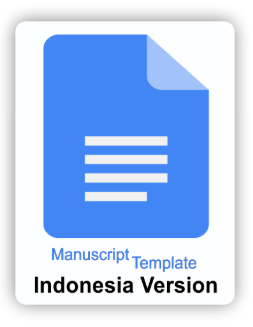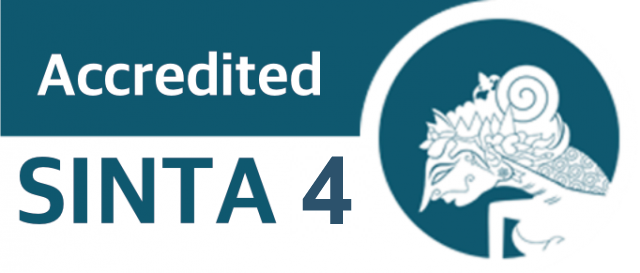Platform Microlearning Object Berbantuan Open AI (Artificial Intelligence) sebagai Upaya Membangun Lingkungan Pembelajaran Mandiri Bagi Mahasiswa Pelaksana MBKM (Merdeka Belajar Kampus Merdeka)
DOI:
https://doi.org/10.21831/ep.v4i2.66893Keywords:
artificial intelligenc, microlearning object, pembelajaran mandiriAbstract
Kegiatan mahasiswa dalam pelaksanaan Merdeka Belajar Kampus Merdeka (MBKM) semakin intens, mempertegas tuntutan bagi mahasiswa untuk dapat belajar secara mandiri. Dalam upaya memenuhi kebutuhan pembelajaran mandiri ini, diperlukan platform online yang dapat memfasilitasi proses belajar dengan optimal. Penelitian ini bertujuan untuk mengembangkan platform adaptive microlearning dengan bantuan artificial intelligence sebagai solusi untuk kebutuhan tersebut. Metode penelitian yang digunakan adalah penelitian pengembangan (R & D) dengan mengacu pada model ADDIE yang terdiri dari lima tahap: analisis, desain, pengembangan, implementasi, dan evaluasi. Uji coba dilakukan terhadap mahasiswa program studi S1 Teknologi Pendidikan FKIP ULM. Hasil penelitian ini menunjukkan bahwa platform adaptive microlearning yang dikembangkan layak digunakan, dengan persentase skor validitas dari ahli materi sebesar 82% dan ahli web-based learning sebesar 85%. Kedua persentase tersebut termasuk dalam kategori cukup valid. Platform yang berhasil dikembangkan dapat efektif digunakan sebagai suplemen dalam pembelajaran mandiri bagi mahasiswa.
References
Akbar, S., & Holid, A. (2013). Instrumen perangkat pembelajaran. Remaja Rosdakarya.
Akker, J. van den. (1999). Principles and methods of development research. In Design Approaches and Tools in Education and Training (pp. 1–2). Springer. https://doi.org/10.1007/978-94-011-4255-7_1
ílvarez, C., & Falcon, S. (2023). Students' preferences with university teaching practices: Analysis of testimonials with artificial intelligence. Educational Technology Research and Development, 71(1), 1709–1724. https://doi.org/10.1007/s11423-023-10239-8
Anderson, A., Huttenlocher, D., Kleinberg, J., & Leskovec, J. (2014). Engaging with massive online courses. WWW 2014 - Proceedings of the 23rd International Conference on World Wide Web, 1–11. https://doi.org/10.48550/arXiv.1403.3100
Branch, R. M. (2014). Instructional design: The ADDIE approach. Springer. https://doi.org/10.1007/978-0-387-09506-6
Chang, D. H., Lin, M. P., Hajian, S., & Wang, Q. Q. (2023). Educational design principles of using AI chatbot that supports self-regulated learning in education: Goal setting, feedback, and personalization. MDPI, 15(17), 1–15. https://doi.org/10.3390/su151712921
Correa, D., Isaza, F. A., Mazo, R., & Giraldo, G. L. (2018). CME a web application framework learning technique based on concerns, micro-learning and examples. International Conference on Web Engineering, 10845(1), 17–32. https://doi.org/10.1007/978-3-319-91662-0_2
Cyly, Z., AS, S., Prasetyo, Y. D., & Nugroho, Y. S. (2022). Pengembangan bahan ajar digital berbasis kompetensi berorientasi produksi pada mata kuliah dasar fotografi menggunakan aplikasi Sigil. STEAM Engineering (Journal of Science, Technology, Education and Mechanical Engineering), 4(2), 88–96. https://doi.org/10.37304/jptm.v4i2.8355
Dolowitz, A., Collier, J., Hayes, A., & Kumsal, C. (2023). Iterative design and integration of a Microlearning Mobile App for performance improvement and support for NATO employees. TechTrends, 67(1), 143–149. https://doi.org/10.1007/s11528-022-00781-2
Giurgiu, L. (2017). Microlearning an evolving elearning trend. Scientific Bulletin, 22(1), 18–23. https://doi.org/10.1515/bsaft-2017-0003
Gorham, T., Majumdar, R., & Ogata, H. (2023). Analyzing learner profiles in a Microlearning App for training language learning peer feedback skills. Journal of Computers in Education, 10(3), 549–574. https://doi.org/10.1007/s40692-023-00264-0
Guo, P. J., Kim, J., & Rubin, R. (2014). How video production affects student engagement: An empirical study of MOOC videos. L@S 2014 - Proceedings of the 1st ACM Conference on Learning at Scale, 41–50. https://doi.org/10.1145/2556325.2566239
Jin, S. H., Im, K., Yoo, M., Roll, I., & Seo, K. (2023). Supporting students' self-regulated learning in online learning using artificial intelligence applications. International Journal of Educational Technology in Higher Education, 20(37), 1–21. https://doi.org/10.1186/s41239-023-00406-5
Kizilcec, R. F., Pérez-Sanagustín, M., & Maldonado, J. J. (2017). Self-regulated learning strategies predict learner behavior and goal attainment in massive open online courses. Computers and Education, 104(1), 18–33. https://doi.org/10.1016/j.compedu.2016.10.001
Li, Z., Zhou, M., & Lam, K. K. L. (2022). Dance in Zoom: Using video conferencing tools to develop students' 4C skills and self-efficacy during COVID-19. Thinking Skills and Creativity, 46(1), 1–13. https://doi.org/10.1016/j.tsc.2022.101102
Lin, J., Sun, G., Cui, T., Shen, J., Xu, D., Beydoun, G., Yu, P., Pritchard, D., Li, L., & Chen, S. (2020). From ideal to reality: Segmentation, annotation, and recommendation, the vital trajectory of intelligent micro learning. World Wide Web, 23(1), 1747–1767. https://doi.org/10.1007/s11280-019-00730-9
Maulana, F. I., Azis, B., Primadani, T. I. W., & Hasibuan, P. R. A. (2023). FunAR-furniture augmented reality application to support practical laboratory experiments in interior design education. Indonesian Journal of Electrical Engineering and Computer Science, 31(2), 845–855. https://doi.org/10.11591/ijeecs.v31.i2.pp845-855
Molenaar, I. (2022). The concept of hybrid human-AI regulation: Exemplifying how to support young learners' self-regulated learning. Computers and Education: Artificial Intelligence, 3(1), 1–17. https://doi.org/10.1016/j.caeai.2022.100070
Ochieng, P. A. (2020). Children rights to education using ADDIE model approach in arid and semi arid lands (ASAL), Kenyan perspective. AJEST: African Journal of Education Science and Technology, 5(4), 290–297. https://doi.org/10.2022/ajest.v5i4.444
Park, Y., & Kim, Y. (2018). A design and development of micro-learning content in e-learning system. International Journal on Advanced Science, Engineering and Information Technology, 8(1), 56–61. http://dx.doi.org/10.18517/ijaseit.8.1.2698
Popenici, S. A. D., & Kerr, S. (2017). Exploring the impact of artificial intelligence on teaching and learning in higher education. Research and Practice in Technology Enhanced Learning, 12(22), 1–13. https://doi.org/10.1186/s41039-017-0062-8
Prasetyo, D. (2023). Pengembangan e-modul interaktif berbasis problem based learning pada materi gaya menggunakan aplikasi flip pdf professional di sekolah dasar. Universitas Jambi.
Redondo, R. P. D., Rodríguez, M. C., Escobar, J. J. L., & Vilas, A. F. (2021). Integrating micro-learning content in traditional e-learning platforms. Multimedia Tools and Applications, 80(2), 3121–3151. https://doi.org/10.1007/s11042-020-09523-z
Sa'diyah, M., Nurhayati, I., Endri, Supriadi, D., & Afrianto, Y. (2022). The implementation of independent learning independent campus: The new paradigm of education in Indonesia. Journal of Educational and Social Research, 12(4), 289–299. https://doi.org/10.36941/jesr-2022-0114
Stephansen, H. C., & Couldry, N. (2014). Understanding micro-processes of community building and mutual learning on twitter: A "˜small data' approach. Information Communication and Society, 17(10), 1212–1227. https://doi.org/10.1080/1369118X.2014.902984
Sugiyono. (2017). Metode penelitian pendidikan: Pendekatan kuantitatif, kualitatif, dan R&D. Alfabeta.
Sulyanah, S., Hasanah, F. N., & Untari, R. S. (2021). Application of web based learning to measure students learning interest. Journal of Physics: Conference Series, 1764(1), 1–6. https://doi.org/10.1088/1742-6596/1764/1/012099
Sutarto, Muzaki, A., Hastuti, I. D., Fujiaturrahman, S., & Untu, Z. (2022). Development of an ethnomathematics-based e-module to improve students' metacognitive ability in 3D geometry topic. International Journal of Interactive Mobile Technologies, 16(3), 32–46. https://doi.org/10.3991/IJIM.V16I03.24949
Tabares, M. S., Vallejo, P., Montoya, A., Sanchez, J., & Correa, D. (2021). SECA: A feedback rules model in a ubiquitous microlearning context. ACM International Conference Proceeding Series, 136–142. https://doi.org/10.1145/3460620.3460745
Woongbin, P., & Kwon, H. (2023). Implementing artificial intelligence education for middle school technology education in Republic of Korea. International Journal of Technology and Design Education, 1(1), 1–27. https://doi.org/10.1007/s10798-023-09812-2
Downloads
Published
How to Cite
Issue
Section
License
Epistema allows readers to read, download, copy, distribute, print, search, or link to its articles' full texts and allows readers to use them for any other lawful purpose. The journal allows the author(s) to hold the copyright without restrictions. Finally, the journal allows the author(s) to retain publishing rights without restrictions
- Authors are allowed to archive their submitted articles in an open access repository
- Authors are allowed to archive the final published article in an open access repository with an acknowledgment of its initial publication in this journal

This work is licensed under a Creative Commons Attribution-ShareAlike 4.0 Generic License.











